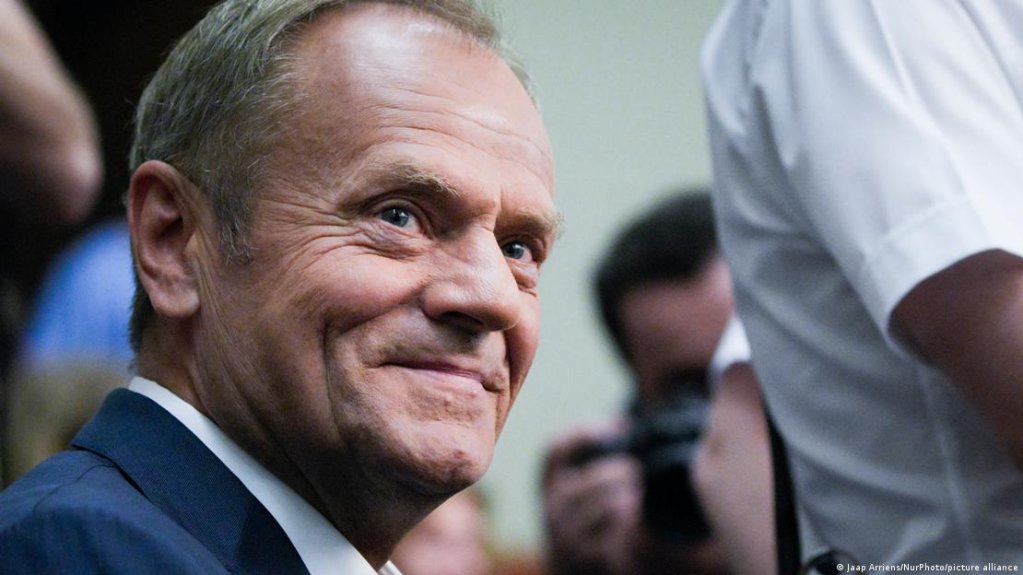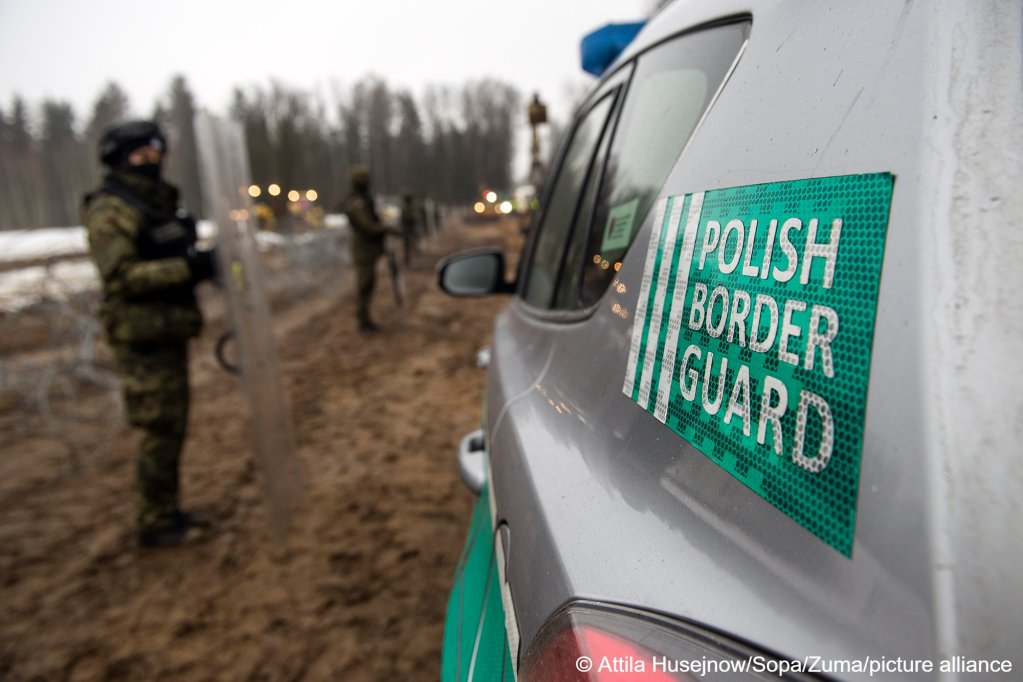Polish Prime Minister Donald Tusk has stated that the Polish government "will not implement” the European Union's migration pact if it mandates Poland to accept migrants relocated from other member countries.
Polish Prime Minister Donald Tusk reiterated on Tuesday (February 4) that Poland’s position on the European Union’s migration pact is final and should not become the subject of political debate, the Polish Press Agency (PAP) reported.
Tusk also warned that the Polish government "will not implement" the EU's migration pact if it requires Poland to accept relocated migrants from other member states.
"Poland will not implement any migration pact or any provisions of this type of project that would lead to Poland's forced admission of migrants identified in other European countries," Polish news agency TVP Info quoted Tusk as saying.
Tusk dismisses claims Poland is struggling with migration management
Speaking at a news conference in Warsaw, Tusk also emphasized Poland’s stance in managing migration pressures and called for greater recognition of its efforts, PAP reported.
As discussions on the EU migration pact continue, Tusk highlighted the role of Poland’s security forces, including police, soldiers, and border guards, in mitigating what he termed irregular migration risks.
"They risk their lives to limit these threats, and no one in Poland or Europe should waste their sacrifices with political decisions," Tusk said. He was referring to a soldier who was killed while on border duty last June.
Despite concerns raised by some political factions, Tusk dismissed claims that Poland is struggling with migration management.
He argued that both regular and irregular migration concerns have diminished following the recent change in government. Tusk was sworn in as prime minister in December, 2023, ending the eight-year leadership of the right-wing Law and Justice (PiS) party.
Although Tusk's governing alliance is largely pro-EU, it maintains criticism of the EU's migration reforms. The Polish leader was also a former European Council president.

What is the EU migration pact?
Tusk’s remarks come amid growing debate over the EU’s migration pact and its planned implementation by 2026.
In October 2024, the European Parliament approved further significant reforms to the EU's migration and asylum policies. The newly adopted EU Asylum and Migration Pact seeks to streamline the asylum process by speeding up the rejection of ineligible applications and ensuring a fairer distribution of asylum responsibilities across member states. It also aims to reduce irregular migration.
The vote followed years of intense debate between conservative and liberal lawmakers, as well as between northern and southern EU countries. It also came at a time when, in 2023, asylum applications in the EU had reached their highest level in seven years. European Commission President Ursula von der Leyen emphasized that the pact would enhance efficiency in processing asylum claims.
The pact still requires formal approval by EU member state ministers, which is expected possibly by late April, before taking effect in 2026.
New system, big changes
Under the new system, migrants who enter the EU irregularly will undergo identity, health, and security screenings, such as biometric checks including facial recognition and fingerprinting, within seven days of their entry. Asylum-seekers from countries with historically low approval rates, such as Tunisia, Morocco, and Bangladesh, will be fast-tracked through detention centers near the EU’s external borders to expedite deportations.
The pact was introduced in response to the 2015 refugee situation in Europe when around 1.3 million people, fleeing conflicts in countries like Syria and Iraq, sought asylum on the continent.
The new system will determine whether migrants qualify for an expedited or standard asylum process or if they should be returned to their country of origin or transit. Brussels has underlined that provisions would be in place for children to safeguard their rights.
Read AlsoEU to boost security, restrict asylum right at Russia, Belarus borders
Poland’s reaction to the EU migration pact
Last spring, soon after the EU migration pact vote passed, Tusk said that his government would "protect" Poland from the migrant relocation mechanism.
"We will find ways so that even if the migration pact comes into force in roughly unchanged form, we will protect Poland against the relocation mechanism," Tusk told reporters.
"I have certain possibilities to build alliances and the mechanism of relocation or paying for not taking in [migrants] ... will certainly not apply to Poland," said Tusk.
European Commission spokesman Markus Lammert said that the pact is legally binding for all member states but includes provisions for flexibility in cases of exceptional migration pressures.

Lammert cited a European Commission report from December recognizing Poland’s unique position as a border country facing state-backed migration efforts from Russia and Belarus, tactics commonly referred to as "weaponized migration." The report also outlined measures available to EU states, such as suspending asylum rights in emergencies and strengthening border defenses.
Poland calls for additional support
Poland has repeatedly called for additional EU support to handle such challenges. Addressing concerns about potential financial penalties for refusing to accept migrants under the pact, Tusk firmly rejected the notion.
"Poland has its own problems caused by the war, mainly due to the large number of people who have come here and whom we have welcomed for completely justified reasons," he said, referring to Ukrainian refugees. While acknowledging the financial strain, Tusk emphasized Poland's continued solidarity with Ukraine.
"Nothing will change our solidarity, especially with Ukrainians, who are victims of the war," he added.
Though Poland has provided support to Ukrainian refugees, Tusk argued that many of those arriving are economically self-sufficient and contribute to the national economy. He said Europe must acknowledge Poland’s contributions and offer support rather than impose additional obligations.
"I exclude any scenario where Poland is forced to act simply because the migration pact says so," he asserted.
EU leaders expressed solidarity with Poland in October, and said they recognized the challenges posed by Russia and Belarus in using migration as a geopolitical tool.
Read AlsoWhat will be the human cost of Poland's new border defenses?
EU still to determine whether to make migration exceptions for Poland
The European Commission has yet to determine whether Poland qualifies as a country under 'migration pressure', which could exempt it from some obligations under the pact. Lammert stated that the EU would assess the situation "in due course."
Meanwhile, Poland’s Interior Minister Tomasz Siemoniak reinforced Tusk's position, stating that Poland has consistently maintained its stance during EU home affairs council meetings.
"Our stance is firm, permanent, and well understood across Europe," Siemoniak said on Tuesday (February 4), Polskie Radio reported.
He also dismissed opposition claims that an informal meeting of EU interior ministers in Warsaw last week had resulted in a decision to accelerate the migration pact's implementation.
"There was no discussion about accelerating or not accelerating the pact; that was not the main topic of the meeting," he said, reiterating Poland's opposition to the pact and rejecting claims of a softened stance.
Siemoniak also pointed out that the migration pact began negotiations under the previous PiS government.
"Every detail of this pact was agreed upon during their time in power," he noted.
